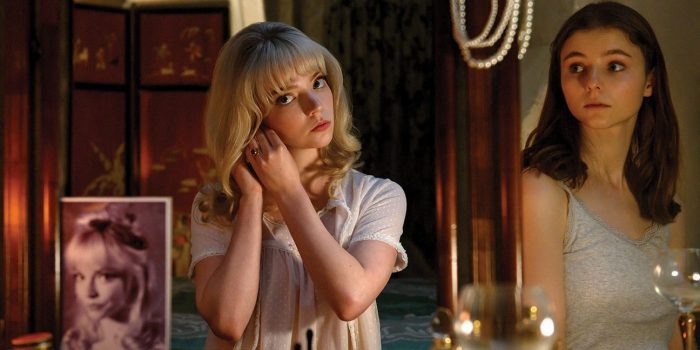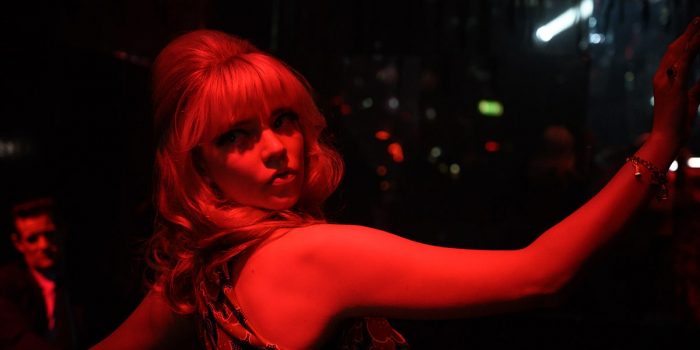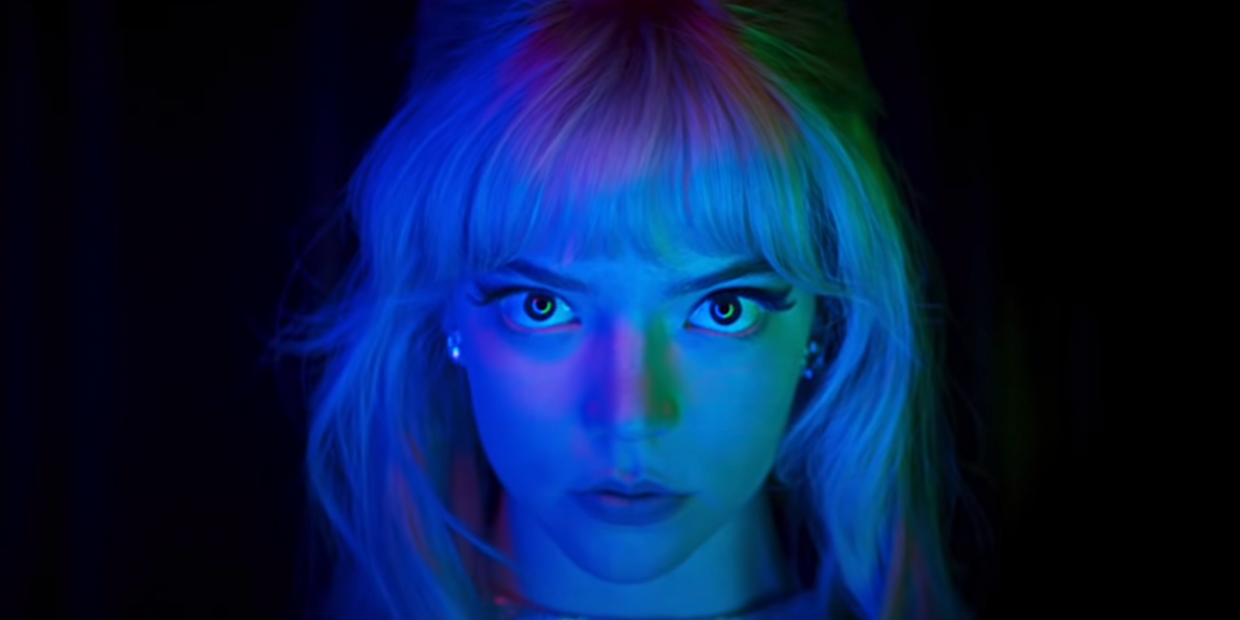Director: Edgar Wright
London Film Festival 2021 review
For better or worse, the genre films of Edgar Wright have always felt like they’re being delivered to us within a pair of quotation marks. Ever since his days at the helm of TV’s Spaced, the director has consistently branded himself as an unabashed pop culture nerd who makes films for and about people much like himself, crafting tongue-in-cheek homages that usually wear their influences on their sleeve.
That last part’s especially true of Last Night in Soho, which offers clear visual nods to Dario Argento’s Suspiria, Alfred Hitchcock’s Vertigo and Roman Polanski’s Repulsion. What’s more, the heroine of Wright’s latest feature is herself an aficionado of decades-old pop culture, immersing herself in the music and fashion of Swinging London, much like how the title character of 2017’s Baby Driver constantly blasted pop music from his earphones as a way of blocking out the world.
On paper, Last Night in Soho suggests a promising matchup of style and theme, but in execution, Wright’s nostalgic and self-aware leanings do as much to distract from the substance of his story as enhance it. Unlike 2004’s Shaun of the Dead, Last Night in Soho doesn’t pack enough humour to be considered a horror-comedy, but it also seems hesitant to give itself over completely to full-on horror, resulting in a work that lacks the necessary bite to do justice to the darker elements of its narrative.

That being said, for at least the first half of Soho’s runtime, it really feels like Wright might pull this one off. In another character detail reminiscent of Baby, the protagonist’s fascination with London in the ‘60s seems partly rooted in her mother’s suicide in the city years prior. When Eloise Turner (Thomasin McKenzie) begins her first year at a London fashion school, she regards the move as a tribute of sorts to her late mother, though her grandmother Peggy (Rita Tushingham) is concerned that the stress of the city may once again prove too much for the Turner family.
After realising that her fellow students are more interested in late-night hookups than her favourite British Invasion bands, Eloise decides to move out of her accommodation to find her own space, settling into a quiet flat that has apparently maintained its design and furnishings from five decades prior. For Eloise, the room serves as a cosy, anachronistic sanctuary from the trials of the modern world – not least when she falls asleep at night and, by some strange and mysterious power, she is able to witness the nocturnal life of a young woman named Sandie (Anya Taylor-Joy), who lived in that same room in the 1960s.
If Eloise’s mother is everything she fears she might become, then aspiring singer Sandie is the stylish, effortlessly charismatic embodiment of Swinging London that the socially awkward Eloise wishes she could be. While the opening minutes of Soho see Eloise lip-syncing to a pop song in her room and acting out red carpet interviews in front of the mirror, her nights with Sandie serve as a far more immersive form of role-play. As Sandie spends spontaneous nights visiting the local clubs and wandering through vibrant streets with a mysterious man named Jack (Matt Smith), Eloise is right there experiencing it all with her in a lavish fantasy of self-actualisation.
The film’s most dazzling expression of this dynamic comes when Sandie takes to the floor with Jack. With every elegant dip and twirl, Jack’s dance partner alternates almost seamlessly between Sandie and Eloise. On a visual level, Jack is dancing with both women, but as far as Eloise is concerned, the one she’s really dancing with is Sandie.

Nonetheless, it soon becomes clear that this glamorous notion of life as a budding star in the 1960s isn’t just an idealistic projection for Eloise but also for Sandie herself, as the latter’s pursuit of fame exposes her to the sleazy side of the industry that Eloise’s nostalgia had previously concealed. As Eloise’s visions of the past veer into increasingly nightmarish and disillusioning territory – eventually culminating in murder – the film undergoes an inevitable tonal shift, and it is sadly at this point that the feature also moves into decidedly mixed bag territory.
Though Last Night in Soho isn’t without its moments of dread – and Wright’s technical virtuosity is evident even in the film’s weaker moments – the film’s atmosphere is compromised by the director’s aversion to seriousness. After decades spent working in comedy, it’s as though Wright can’t stop himself from inserting his trademark one-liners, cheeky wordplay and winking references into the drama, though it’s hard to say whether this approach has lost its lustre over the years or simply doesn’t gel with Soho’s heavier themes.
More to the point, while Last Night in Soho’s narrative suggests a look beneath the fabulous veneer of ‘60s London, any actual scrutiny of the era’s cultural significance and nostalgic signifiers remains largely surface-level – and the same goes for Wright’s fan-pleasing nods to classic horror. We need only look to the oppressively stylish ‘50s and ‘60s period dramas of Todd Haynes and Wong Kar-wai, or the satirical genre films of Paul Verhoeven to see how period fetishisation and genre homage can each be employed as a means of enhancing a story’s emotional and political substance. Next to any of those works, the quirky aesthetics of Last Night in Soho seem downright cute by comparison.
Granted, none of this quite stops Last Night in Soho from being a fairly diverting watch, but with a story that wraps entertainment industry exploitation, generational divides, sexual politics, mental illness and analysis of boomer-era nostalgia into a single paranormal horror package, surely it’s not too much to ask that the results add up to more than a lightly amusing way to kill two hours. Unlike Eloise’s nightly visions, this is a dream that’s mostly forgotten upon waking.





